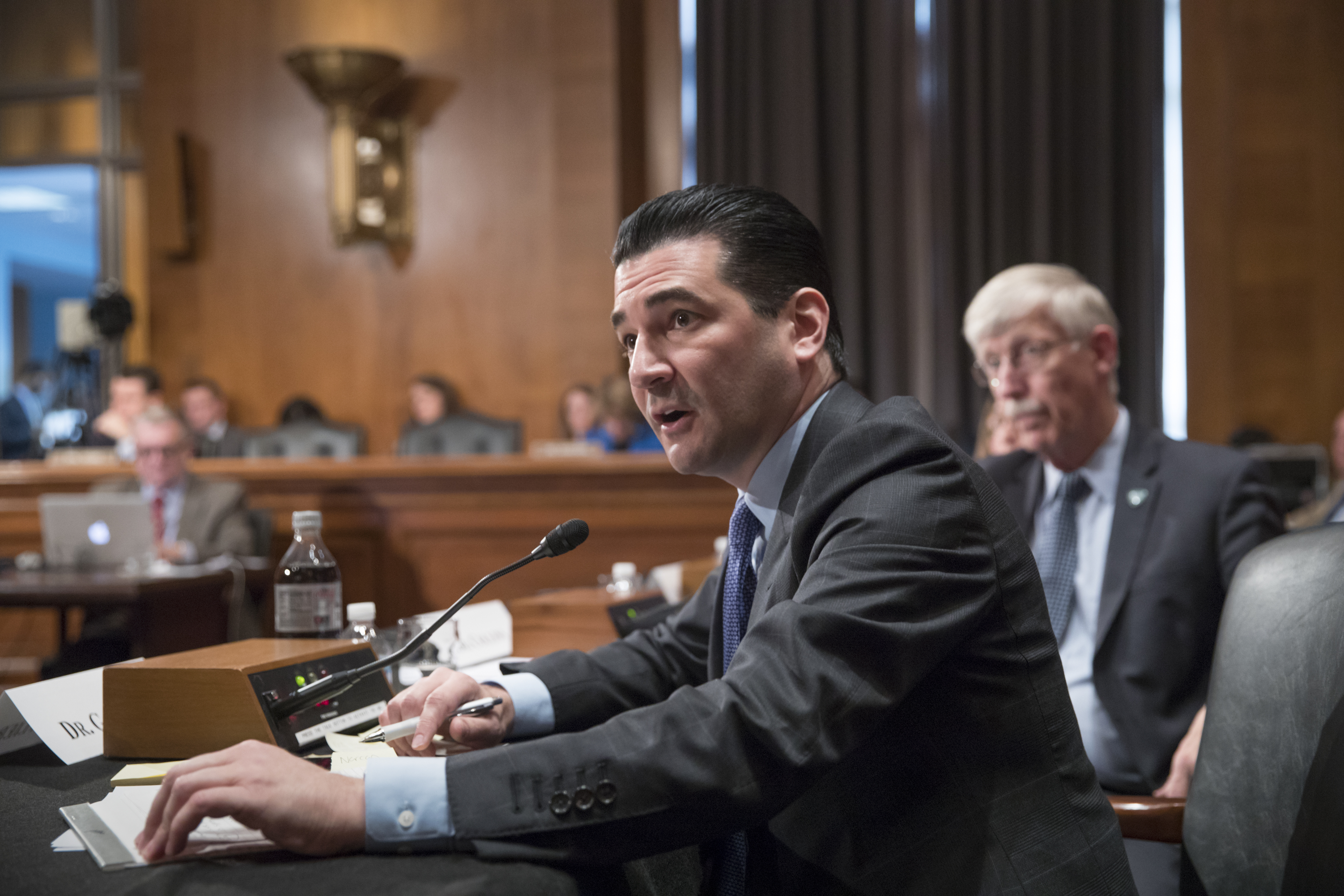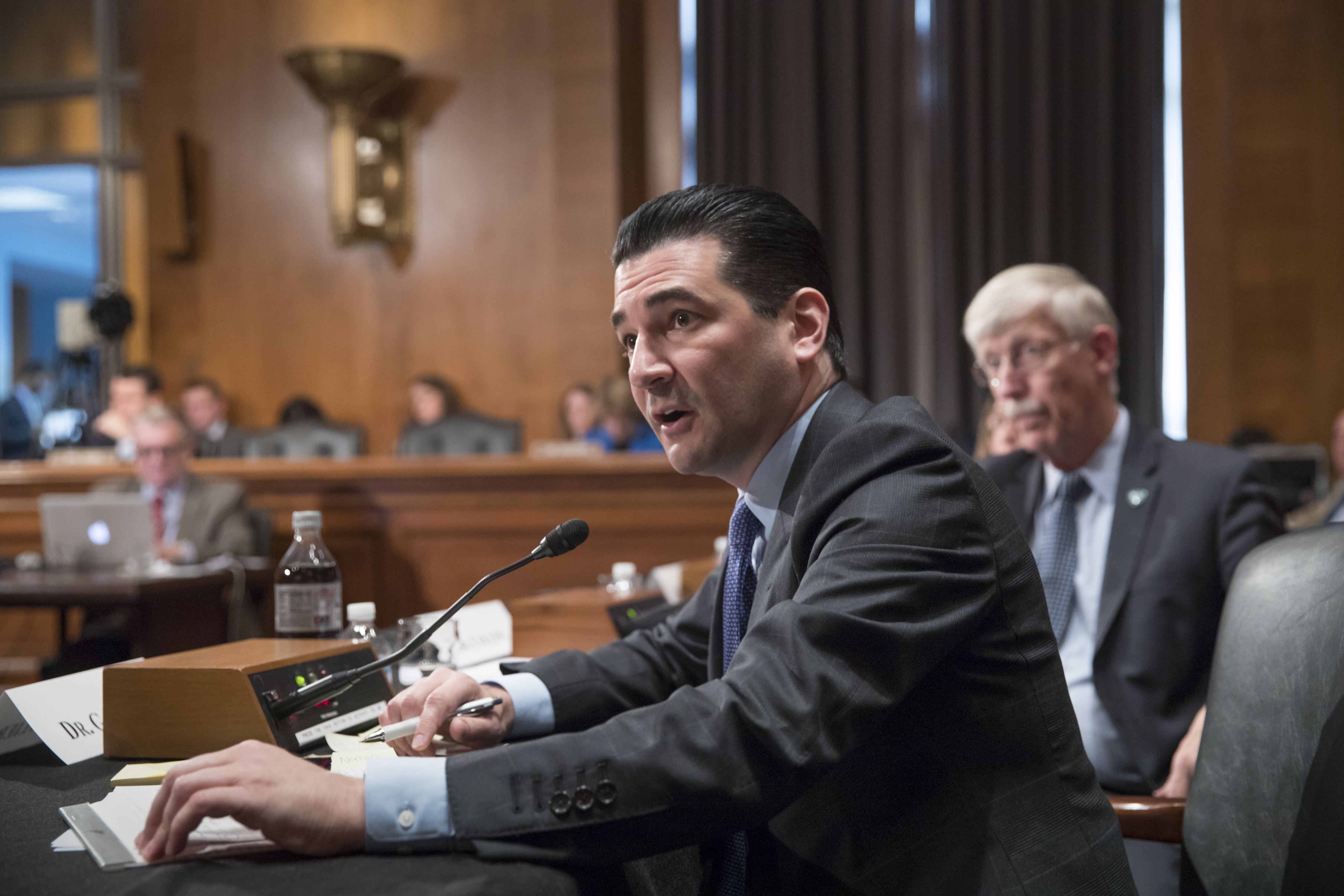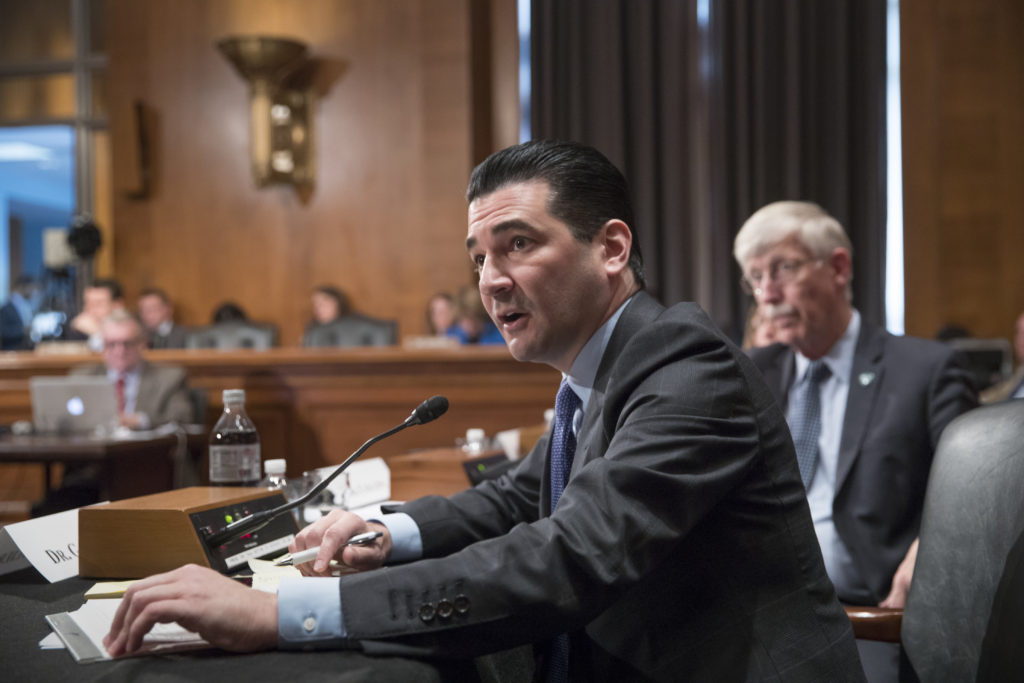Experts to Senate Committee: There’s no end in sight for the opioid crisis
{$excerpt:n}


Scott Gottlieb, commissioner of the Food and Drug Administration, answers a question as the Senate Committee on Health, Education, Labor and Pensions examines the federal response to the opioid addiction crisis, at the Capitol, Thursday, Oct. 5, 2017 in Washington. (AP Photo/J. Scott Applewhite)
On Thursday morning, the Senate Health, Education, Labor and Pensions (HELP) committee held their first of a series of hearings evaluating the government’s response to the opioid crisis. Committee Chairman Lamar Alexander (R-TN) called on experts to explain to members “what’s working, and what needs work.”
Sen. Susan Collins (R-ME) asked why the preventative measures aren’t working.
“We’ve passed legislation; we’ve increased funding, we’ve recognized that you have to focus on education and prevention, law enforcement, treatment, and recovery and yet we seem not to be making the kind of progress that we need to make,” Collins said.
Elinore McCance-Katz, Assistant Secretary for Mental Health And Substance Use Services Administration (SAMHSA), said the efforts were not enough.
“We still do not have adequate access to treatment, to evidence-based treatment, for people who need it and so as long as that situation occurs we’re going to continue to have the terrible kinds of tragedies that are the opiate epidemic,” McCance-Katz said.
In the FY2018 budget, SAMHSA requested $3.9 billion for the Mental Health Administration. SAMHSA is a unit within the U.S. Department of Health and Human Services dedicated to finding preventative and treatment measures for substance abuse and mental disorders.
McCance-Katz said there needs to be more access for addicts to specialty care, and integration of addiction treatments into primary care. She said behavioral health centers need to provide more addiction treatment and colleges need to focus on educating doctors at the undergraduate level on opioids.
Dr. Francis Collins, the Director National Institutes of Health said the focus for the NIH is on creating a non-addictive solution to chronic pain. He admitted that it is time for his institute to put their foot on the accelerator and find medical answers for patients.
Acknowledging prescription rates as a leading contributor to the epidemic Sen. Bill Cassidy (R-LA) asked what experts were doing to address and track “high-intensity prescribers.”
Debra Houry, Director of the National Center for Injury Prevention and Control at the Centers for Disease Control and Prevention, admitted that there is not one overarching federal program regulating the physicians instead it is left to different agencies at the state level. Cassidy acknowledged that without government entities like the Drug Enforcement Agency acting as a watchdog for prescribers, the “pill mill” doctors will not stop and go from state to state.
Scott Gottlieb, Commissioner of the Food and Drug Administration, responded to senators over prescribing concerns, saying its simple math. The more doctors prescribe, the larger the epidemic gets. Gottlieb assured the committee that overprescribing and exposure rates are a top concern for the FDA.
Although, in recent years, prescription rates have been on the decline due to increased awareness of the addictiveness of opioids. Sen. Chris Murphy (D-CT) asked the experts why the decline in prescribing hasn’t resulted in a reduction in addiction rates.
Gottlieb acknowledged that even though prescription rates are decreasing, people are already addicted and are now they are moving on to street drugs that are laced with fentanyl. Houry responded by discussing the potency of fentanyl. Fentanyl is a synthetic opiate that is more than ten times stronger than other opioids and is leading to an increase in overdose deaths due to abusers not understanding its potency.
For almost three hours, senators gave their accounts of the growing death rates in their state from overdoses. Sen. Elizabeth Warren (D-MA) gave a personal statement, admitting that a close friend hers lost their child to an overdose this week.
Sen. Tim Kaine (D-VA) asked if there is an end in sight for this crisis. Kaine asked the panel if the opioid crisis would be solved by 2030.
“I don’t think that we can eliminate addiction by 2030, but I do think that we can remove the stigma, and make it just like any other disorder or disease so that people can get the care that they need,” McCance-Katz said.
Dr. Collins said there are bold combination efforts that need to be taken to do so. But he admits that it is hard to imagine specialists will be able to do so by 2030 with the current lack of resources and funds agencies have.
The post Experts to Senate Committee: There’s no end in sight for the opioid crisis appeared first on Red Alert Politics.
Source: Red Alert Politics



